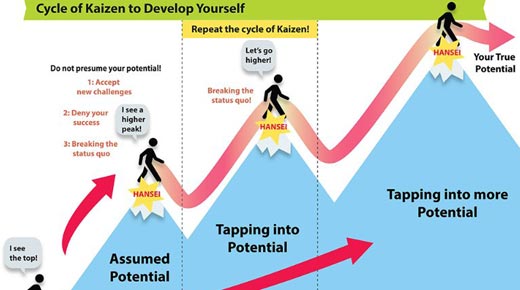Japanese improvement techniques have been emulated across the globe for decades, and none carries more cultural weight than the theory of kaizen. When I expose Western leaders to lean practices in Japan, they often express that they have come away with a better understanding of “true kaizen.” They are clearly witnessing something in Japanese society that is not carried over in mainstream guides to lean.
Despite what you may have been told, kaizen does not just mean “continuous improvement.” “Change for the better” is a part of kaizen, to be sure, but there is much more to it. Many experts might show you the kanji (Japanese letters “改善”) that make up the word kaizen and explain their composition and history, but this would be a lesson in etymology rather than an exploration of what kaizen actually means. I feel that an over-emphasis of the word “kaizen” has distracted people from the theory of kaizen. The theory cannot be contained in a single phrase, so instead I will walk you through what it means to those who have experienced its benefits, myself included.
…

Comments
Kaizen: Lost in Translation
I found the article very interesting and formative at the same time. It’s not always easy to think that the results of an action and the action itself are the expression of a change in the mindset. The cycle of kaizen is open minding on how to face many working challenges.
Add new comment